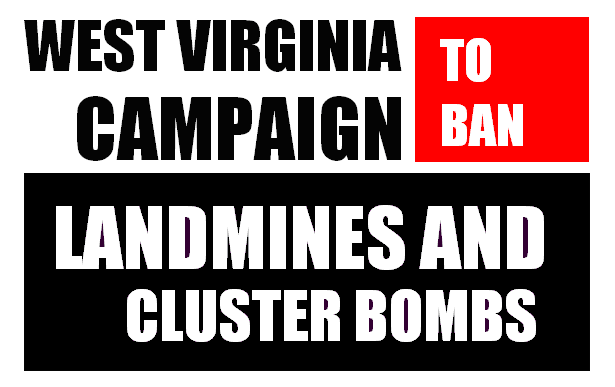The Road to Cartagena: A Mine Free World
IS Possible!
Report by Nora Sheets
Coordinator/WVCBL: West Virginia Campaign to Ban Landmines
and Cluster Bombs/PSALM: Proud Students Against Landmines
and Cluster Bombs
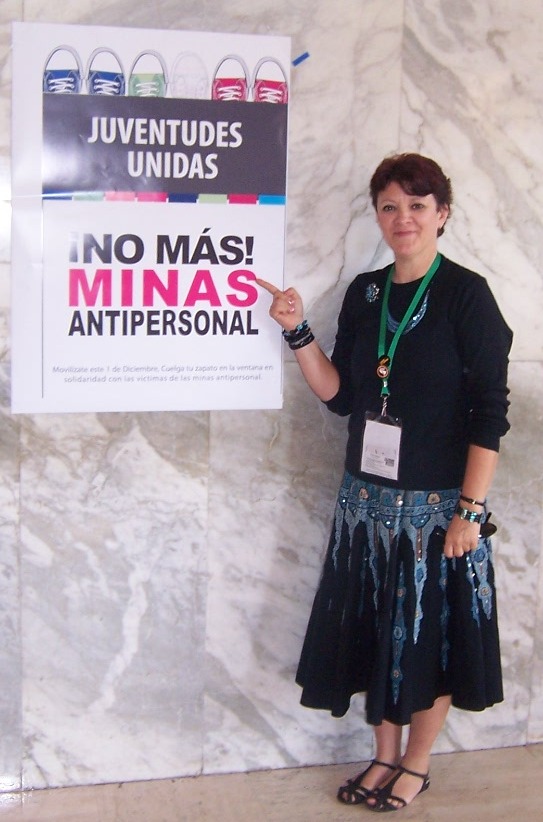
On November 28th, 2009, I was honored to represent the West Virginia Campaign to Ban Landmines and Cluster Bombs and PSALM/ Proud Students Against Landmines Cluster Bombs and at the Cartagena Summit on A Mine Free World in Colombia. The Cartagena Summit on a Mine-Free World is the name given to the Second Review Conference of the Anti-Personnel Mine Ban Convention, which entered into force ten years ago. It was an opportunity to prove that we are on the way towards ridding the world of the scourge of landmines. Over 1,000 participants including heads of States and Governments attended the Summit in Cartagena. During the meeting it was noted how anti-personnel mines continue to be used in conflicts around the world causing human suffering and impeding post-conflict development.
A 5K race through the streets of Cartagena was held on Sunday. It was an opportunity to see the city, test our endurance in the heat of Colombia. Vice-President Francisco Santos Calderon welcomed and started off the race in Plaza de la Aduana. The participation included those of antipersonnel mine survivors, people with disabilities, delegates from the international community, national authorities, members of civil society organizations and Cartagena’s community.
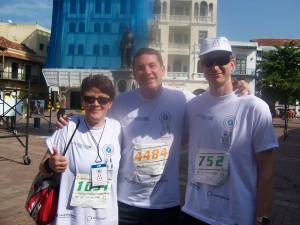
This was the second review summit the first one being in Nairobi, Kenya 5 years ago (which I was most honored to attend). Delegations reviewed the work that the 156 nations have done to eradicate the use of landmines and to help the survivors. A new Cartagena Action Plan was developed to address the challenges that remain in clearing minefields across the world and in assisting the survivors.
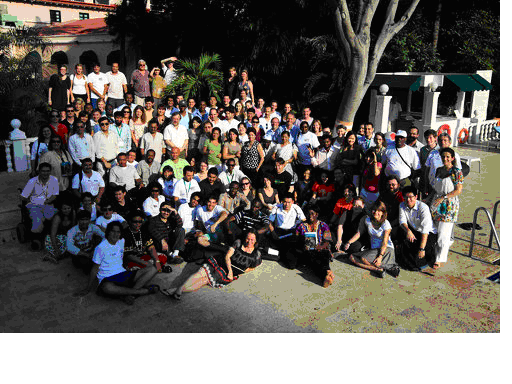
The International Campaign to Ban Landmines (ICBL) delegation, a network of more than 1,200 non-governmental organizations in over 70 countries and a 1997 Nobel Peace Prize co-laureate for its work on behalf of a mine-free world has made significant progress in eradicating antipersonnel mines since the Mine Ban Treaty took effect:
- Global use, production, and trade of antipersonnel mines have been dramatically curtailed;
- A total of 156 nations are party to the Mine Ban Treaty, and another two countries have signed but have not yet ratified. Nearly all of the 37 countries that have not yet joined are in de facto compliance with most of the treaty’s provisions.
- Some 3,200 square kilometers of land has been cleared of mines and explosive remnants of war;
- The number of new mine and explosive remnants of war casualties has significantly reduced each year, down to 5,197 recorded casualties in 2008, compared to an estimated 26,000 recorded and unrecorded casualties per year in the 1990s; and
- More than 44 million stockpiled antipersonnel mines have been destroyed by states party to the Mine Ban Treaty.
Although much progress has been made through the AP Mine Ban Convention, many challenges remain. Some countries that have not yet joined the Convention, such as China, India, North Korea, Pakistan, Russia and the United States, have large stockpiles of landmines.
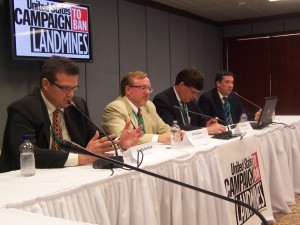
The Anti-Personnel Mine Ban Convention seeks to eradicate the use of landmines and to end the suffering caused to victims. States that join are required to never use landmines again and to provide assistance to the survivors. 156 States are party to the Convention.
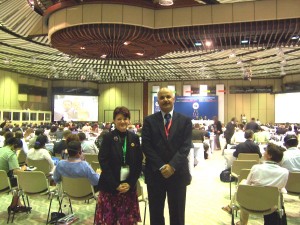
The Conference began with a session on victim assistance, the agenda specifically chosen to emphasize the recognition of States Parties of the need for a renewed commitment to urgently implementing victim assistance provisions under the Convention. Inclusion of provisions for victim assistance is one of the most significant achievements of the Mine Ban Treaty.
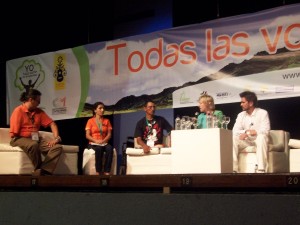
JUANES, the Colombian music superstar lent his voice to the world summit. In 2006 Juanes became the first artist ever to perform in the debating chamber of the European Parliament as part of the European Union campaign to eradicate landmines. Juanes, a 17-time Grammy Award Winner, founder of the Mi Sangre Foundation, and mine eradication activist said he is proud to support The Cartagena Summit on a Mine-Free World.
We were pleased that the United States attended the Ottawa Convention’s Review Conference for the first time. The Administration’s decision to attend this Review Conference is the result of an on-going comprehensive review of U.S. landmine policy initiated at the direction of President Obama.
This is the first comprehensive review since 2003. Along with other members of the United States Campaign, we met with State Department representatives to discuss the importance of transparency and inclusion of representatives for the USCBL in these reviews. The US reiterated its commitment to “continued U.S. global leadership in eliminating the humanitarian risks posed by landmines” and mine action funding, stating that “the Administration applauds the significant accomplishments to date by the Convention.
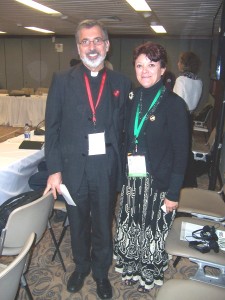
On behalf of the Holy See, the Archbishop of Cartagena delivered a powerful statement saying that human beings must be the center of our concerns, that victim assistance to victims and their families must be the focus of our work, but asked how was it possible to draw distinctions between victims of landmines, cluster munitions, and small arms and light weapons or in clearance of the weapons? The defense of national interest must never be at the detriment of the civilian population, he said. Sandra Castro Zapata, Colombian mine survivor, delivered a moving message from Pope Benedict XVI. In a statement sent to the Cartagena Summit on anti-personnel mines, Pope Benedict XVI said there are no ethical arguments to defend the production and use of the weapons, especially given that most victims are innocent civilians. The Holy See reiterated its appeal to all non-signatory nations to ratify the convention, highlighting China, India, the US and Russia as the most important states who have yet to sign. The Holy See also appeals “to all states to recognize the deplorable humanitarian consequences of anti-personnel mines. Experience shows that these weapons have caused more victims and damages among the civilian population, which should be defended, than they have served to defend states. The thousands of victims that they continue to bring remind us, in case it should still be necessary to repeat it, of the chimera of wanting to build peace and stability with an exclusively military vision.” It was quite an honor to meet with the Vatican representatives and give a “shout out” on behalf of the work of PSALM students for the past ten years.
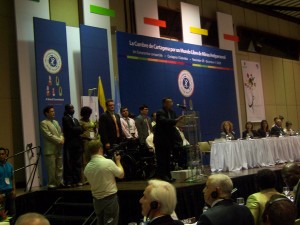
On November 3rd, the International Day of Persons with Disabilities, and anniversary of the signing of the MBT and the CCM, began a two-day high level segment with statements from over 30 senior government, international organization, NGO, and survivors’ representatives. Statements focused on successes achieved in the implementation of the MBT, but at the same time remained forward-focused and emphasized the need for commitment to further progress. Survivors Ken Rutherford, Margaret Arach Orech, and Prasanna Rajiv Kuruppu read the ICBL Survivors’ Call to Action, delivering also a powerful visual message, surrounded on stage by fellow survivors and campaigners. The statement covered concrete points of action calling on all to ratify the Mine ban treaty as well as the Ban on Cluster Munitions and support of the Convention for People with Disabilities. They also noted the need for an increase of Victim Assistance effectiveness by integration in national development plans, emphasizing in particular the importance of reaching survivors in remote areas.
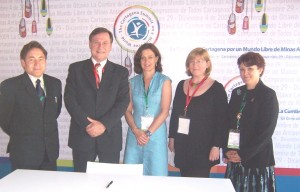
Reflecting back on the progress over the last five years, as country after country listed the steps they had taken along the way, the sense of the accomplishments of the MBT began to settle in, as statistic after statistic was provided on the number of mines cleared, the number of mines destroyed (over 44 million from stockpiles), the number of victim assistance initiatives undertaken, and the number of dollars contributed. More important were the number of statements with pledges of commitment to push forward in continuing work, in a broader scope under a new phase of implementation, ensuring synergies between the MBT, CPRD, and CCM – two instruments which have come into existence in large part due to the foundations set by the MBT and now stand in a position to build further on its impressive work.
Notable amongst the many high level attendees were Princess Astrid of Belgium, Prince Mired of Jordan, and Vice President Fransisco Santos Calderon of Colombia, and from the ICBL, Nobel Laureate Jody Williams. Jody Williams spoke about the enduring vitality of the partnerships between governments and civil society in the continued success of the MBT, and reminded all that the MBT was not just about the pretty words and speeches heard today and to honor their commitments with actions, adding that the MBT movement has been pretty good at following pretty words with actions.
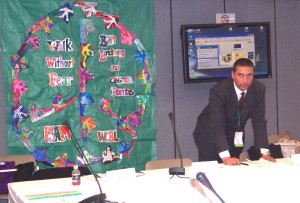
On Friday December 4th, I had the wonderful opportunity to present a side-conference workshop hosted by the Italian Campaign to Ban Landmines, Moviment per la Pau, the Colombian Youth Campaign and the West Virginia Campaign to Ban Landmines/PSALM: Proud Students Against Landmines and Cluster Bombs titled, “ Involving young people in human rights campaigns: opportunities and challenges” It was an opportunity to share strategies and methodologies to improve the involvement of young people in peace/disarmament/human rights campaigns.
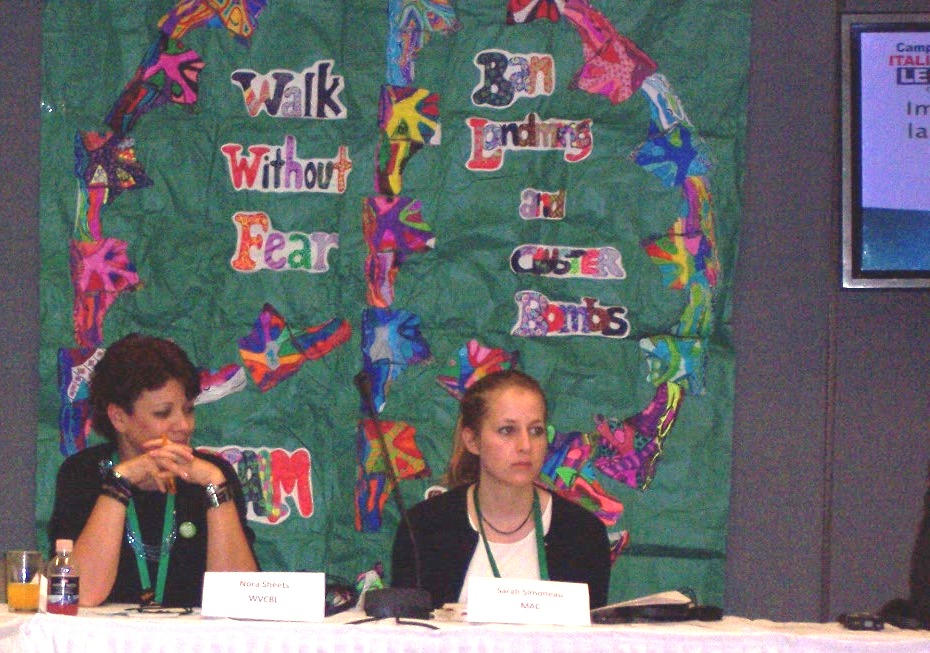
The success of the week was clearly seen in the recommitment and rededication from governments and NGOs alike. States have agreed to an ambitious five year action plan at the outcome of the week, although we won’t know the true measure of success from Cartagena for a few years to come, until we see the number of commitments made turn into accomplishments – and a lot of that depends on us! It was a great opportunity for me to meet with the various youth campaigns, Pax Christi, Jesuit Relief Service, Religions for Peace, Cluster Munitions Coalition and others to coordinate efforts for the coming year. We are very excited about the Cluster Munitions Treaty becoming fully ratified, making it binding, international humanitarian law!
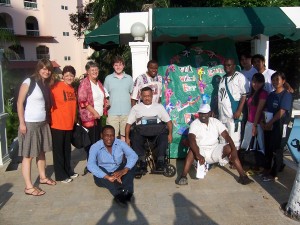
The Cartagena Summit laid a strong foundation for progress over the next five years with an ambitious but flexible road map and progress will be reviewed every year. It’s now up to us to ensure that the goals are met and exceeded. We are up to the task and look forward to a “mission possible…a mine-free, cluster bomb free world for all children!
On behalf of our PSALM students, I want to thank all of our supporters and benefactors! YOU make our work POSSIBLE!
